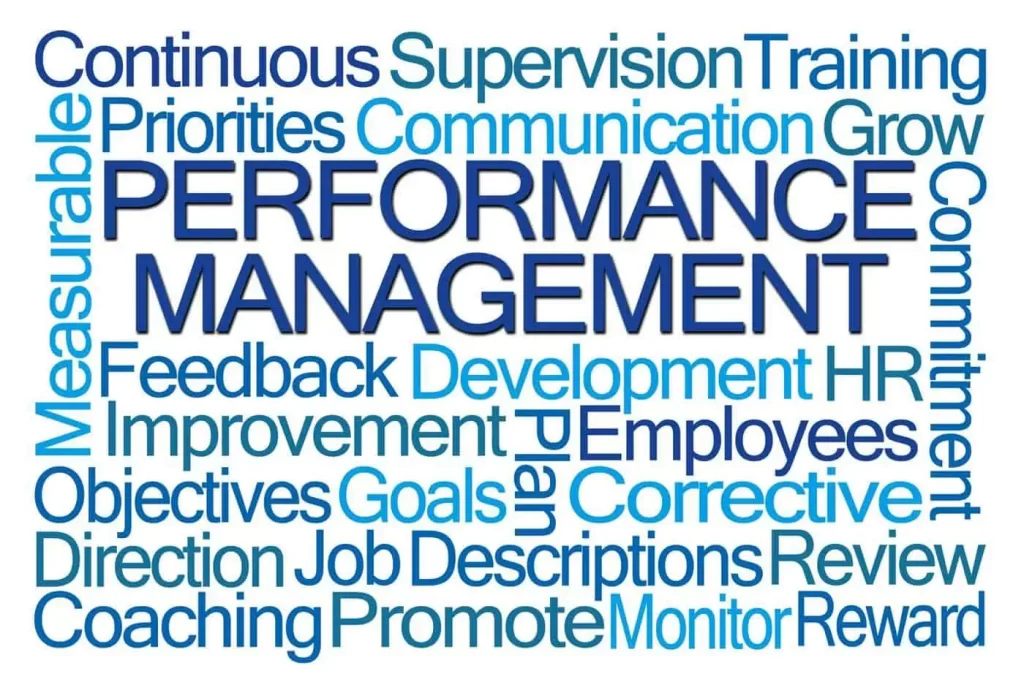
Did you know that 69 percent of executives are uncomfortable communicating with employees? You need high-performance executive coaching to enhance skills and performance to create a high-performance team.
However, how do you move past the fact that many executives aren’t comfortable talking to employees or giving feedback? Effective performance executive leadership requires those skills to be used.
Please keep reading to learn more about high-performance executive leadership coaching and how to help your executives build their needed skills. Also, don’t neglect to set HR goals that align with your business objectives and the desired performance.
Putting a high-performance coaching strategy into place can help you -the executive- to understand and build a team that performs to the best of its abilities. High-performance leadership coaching is a highly effective pathway to manage your employees and can be used by new and experienced executives.
With this strategy, your executives use integrated activities that help motivate, develop, and measure the performance of all your team members. Because of this, you can use this strategy to help support team goals.

One of the reasons both beginner and experienced executives can quickly implement high-performance leadership coaching is that it’s a well-defined process. This style of management can be broken down into four stages.
Your first stage is planning; how often you do this will depend on your business. Historically, planning used to only happen once a year during performance evaluations.
However, with the rapid evolution of different industries, quarterly plans and reviews are often more beneficial. You will do several things during the planning stage of performance management.
First, you need to work with your employees to set SMART objectives. These will help form the personal development plan you create together. In addition, you need to ensure that you list actions that will occur between the current and subsequent reviews.
Finally, during the planning stage, you want to review the role your employee fills and their job requirements. If needed, take the time to update their job role during this time.
The next step in high-performance leadership coaching is to act. During this time, your employee will work on achieving your objectives in the planning stage. In addition, they will work towards the personal objectives that you determined.
Essentially, this is the stage where your team works on carrying out their role.
Stage three should occur at the same time as stage two. While stage two lays out your employee’s responsibility, stage three is about your responsibility to your team members.
Executives who wait until the following review to check in with employees on their goals set everyone up for failure. You should check to see if your team members need life coaching or help with obtaining their goals.
Your job here is to ensure you set your team members up for success. This includes tracking progress, helping overcome obstacles, giving regular feedback, and coaching.
Stage four is review. During the review, you will discuss the objectives laid out in the planning stage and whether or not they were met.
Celebrate achievements during this time, and identify what your employee has learned between the planning and review stages.
The review is a great time to discuss further career goals with your employees. This is also a great time to begin planning for the next performance evaluation.

As a manager, you need to possess specific skills and qualities for effective performance management. The skills and qualities below will help you push your team to success.
Communication isn’t as easy as it sounds. It would be best if you had the ability to talk to your team and hear them. Active listening is essential for executives and managers.
You need the ability to engage in good written and oral communication. This skill will help you build good working relationships with your employees.
However, how do you create an environment that prioritizes open communication? There are a few things that can help with that.
First, establish an open-door policy. “My door is always open,” how many executives have said that to you and meant it?
While it sounds cheesy, your employees must know that they can come to you to discuss issues and concerns. Saying it is one thing; you must follow through by ensuring that your employees feel they can take advantage of that policy.
Next, create an environment that encourages the sharing of ideas. This will benefit your company in several ways; however, it will also help establish an environment where employees learn to be comfortable approaching you.
Finally, involve your employees in the decision-making process. Getting employee buy-in is imperative, and one of the ways to do this is by involving them. The perk is that it can also help improve communication when your employees feel you genuinely want to hear from them.
For high-performance coaching, you need the ability to set goals. In addition, these goals must be SMART. You won’t see the progress you need if poor goals are set.
There are two skills you need to help with goal setting. The first is the ability to clarify expectations. When you clarify what you expect, you can move from there to set the goals needed to meet expectations.
The second is the ability to determine realistic standards and targets. As a manager, you need the ability to decide what’s realistic and what’s not. Goals that are out of reach set your employees up for failure.
When you set your employees up for success, you set your company up for success.
This one might seem obvious, but measuring employee performance is more challenging than some think. The measures used aren’t always quantitative, and that’s where it becomes challenging.
However, the ability to measure employee performance on multiple levels is imperative for the tracking and review stage.
Not many employees enjoy performance reviews. Some employees even talk about crying after reviews. How you do reviews matters.
It’s the difference between an effective performance review and a review that simply discourages your employee. A significant part of the review is feedback.
Feedback can be challenging to give and even more challenging to receive. To some degree, the mindset around feedback needs to change on both ends.
Executives need the ability to give growth-focused and specific feedback. In contrast, employees need the ability to use the feedback provided as an opportunity for growth. This is another place where communication skills are imperative.
We mentioned that it’s your job as a manager to track your employee’s progress between reviews. If needed, you also need to coach and develop your employees.
This skill can help push your team members to success. Executives as coaches can also help increase productivity.
Studies have shown that executives who use training and executive coaching together see an 88 percent increase in productivity. This is compared to training alone, where executives saw only a 23 percent increase in productivity.
Some models of high-performance coaching include rewarding employees as the fifth stage of effective performance management. Do you want to continue building your team up? The ability to recognize successes and achievements is imperative.
It’s essential that you do this on several levels. First, you should recognize employees on a formal level. This can be done with awards.
However, not every success qualifies for an award, but it’s still important to recognize a job well done. This can be done using informal recognition techniques.
Informal recognition techniques can include verbal acknowledgment in a meeting or a little blurb in a newsletter. In addition, it can be as simple as a thank you email or card.

There are different factors involved when you’re working on building an effective performance management system. However, when attempting to develop this system, you need the ability to do the following things well.
We’ve spent a lot of time discussing setting goals already, which should tell you how important this skill is. However, the ability to help set goals as part of high-performance coaching goes beyond just setting goals for your employee.
You want your employee to be a part of the process for effective performance management. Together you need the ability to set goals that are understandable and meaningful.
To set tangible goals together, it’s important to be able to do a few things. First, you need the ability to communicate company goals, challenges, and direction to your employee.
This will help guide them in setting goals that align with the direction you’re heading in as a company. Armed with this information, employees can work to create their own goals with your guidance.
This puts them in the driver’s seat and creates an environment where employees are invested in their goals. Ultimately, you’ll see increased employee success when you allow your team members to set meaningful goals.
Being kept in the dark is difficult as an employee and can lead to frustration. It’s important to practice transparency with your employees.
For example, if your business is struggling, talk to your employees about it. Talk about how you can work together to improve things and let them know where things are realistic.
Another place where this is important is in the tracking and review stage of performance management. If you don’t tell your employees there is a problem; they don’t know to change what they’re doing.
If it gets to the point that their job is on the line for something you never talked to them about, you’re not practicing effective performance management.
Around 63 percent of employees who left their jobs in 2021 report that part of the reason was that there was no room for advancement. If anything, this shows that employees want the ability to learn and grow.
For effective performance management, you need to continue developing your employees. It will help your employees grow their skills and help you reduce turnover.
This can come in the form of education or one on one mentoring. Ultimately, ensuring that you give employees those opportunities is the most critical factor.
We touched on recognition a little above. However, it’s important to note just how important praise is. Of the employees that left jobs in 2021, around 57 percent said it was because they felt disrespected at work.
Employees can feel this way for a variety of reasons. Maybe it’s how their customers or employers speak to them, and that’s a significant issue that needs addressing.
However, you can help employees feel respected and valued by providing recognition. Find out what type of recognition your employees value, and give them that recognition when they do well.
This will help drive them towards completing their goals and continuing to improve—employees who feel valued stay and work to give their best to the company that values them.

To fully understand what effective performance management looks like, you need to understand what ineffective performance management looks like. To some degree, you’ve probably seen some of these things before.
Around 77 percent of human resources experts say annual reviews don’t accurately represent an employee’s work. However, companies continue to stick to the tired model of only doing performance reviews once a year.
This is an example of a system that’s not accurate or fair. When you wait to address problems until that one time a year, you are not giving your employees the chance to continue learning and growing.
You want to ensure that the systems you put in place are accurate and fair.
It’s tough being a manager. However, you won’t have an effective performance management system if you only put in minimal effort.
Employees can tell when you’re just checking boxes off your list. Executives who are passive and don’t care will eventually create passive employees who don’t care. The health of your team starts with the leadership team.

Effective performance management can help you create high-performance teams. However, the importance of performance management goes beyond the obvious.
Various benefits of effective performance management show just how important it is.
Part of the performance management model requires your executives to track team members’ progress. Because of this, they’re constantly able to assess employees’ skills.
With performance management, you don’t have to wait and shouldn’t wait until the following review to discuss skills that need improvement. You should spend time coaching and training between reviews.
Because you are constantly tracking and assessing performance, you can identify training needs early and address them quickly.
When you don’t have an effective performance management system, it can lead to stress. Employees spend too much time worrying if they’re doing something wrong and stressing out about their following annual review.
However, executive performance management is a continual conversation. This reduces the stress of the unknown; for some employees, it can change their perspective on feedback.
In addition, with performance management, you’re rewarding your employees for their successes—people like getting acknowledged when they’ve done an excellent job.
This acknowledgment and the reduced stress can help boost your team’s morale.
Do you have a future with your current company? What does it look like? Is there room for growth?
Employees want to grow, learn and expand. When they feel there is no way to progress in a company, they start looking for other alternatives.
Frequent reviews allow you to talk to your team and get to know them. You’ll learn about their professional goals and where they see themselves in the future during this time.
This allows you to work with your employee to define their career path. Once you’ve done this, you can work with them to set goals to help them work towards the future they want.
Defining a career path and working towards it can help reduce turnover.
How often are you talking to your team members? Are you sharing plans and projects with them?
The answers to these questions matter if you want to implement effective performance management. When you have those answers, you can identify upcoming needs.
Your employees can let you know if they’re struggling with their workload or if they can take on more. This will help you plan to hire if needed, and it will help ensure your employees don’t burn out from getting overworked.
How do you determine promotions, raises, and transfers? When implementing effective performance management, it becomes easier to determine what employees deserve.
You see firsthand the initiative your team members are taking. In addition, you know the career goals of your team and can determine if this is something that will help them get there.
How much time is spent making sure your employees are completing tasks? Do you ever wish your employees were more independent and took the initiative?
With high-performance coaching, you can see the difference. Employees know the company’s goals and have their own goals to work towards.
Because they know the plan, they can be more independent and take the initiative. This saves you time as a manager.
Hiring new employees takes time and money. However, having the right performance management system in place can save you time and money because you reduce employee turnover.
Around 85 percent of employees risk quitting their job when they feel they get an unfair performance review. Performance reviews matter, and if you’re using effective performance management, you should have systems in place that are fair and accurate.
In addition, the other benefits of effective performance management help create a space where employees want to remain. This helps you hang onto the employees already bringing value to your company.
How engaged are your employees? Are they invested in their goals?
When you set goals for your employee, they’re often not engaged. This increases the chance that they won’t achieve their goals. If your employees aren’t reaching their goals, your company suffers and struggles to reach company goals.
You can increase engagement by making your employees a part of the process. Effective performance management allows your team members to be an integral part of setting their own goals.
This increases employee buy-in, and your team members are more engaged.
Do you know what’s expected of you in your workplace? According to a survey by Gallup, only 50 percent of employees know what’s expected of them at work.
With effective performance management, you create a plan with your employees. Because of this, they know what’s expected of them.
High-performance coaching has many benefits that can help your employees and business achieve success. This model is great for experienced and new executives to implement.
Are you ready to continue learning and growing as a manager? Business coaching can help you build and grow your business. Schedule a discovery session today to find out more about our business coaching services.